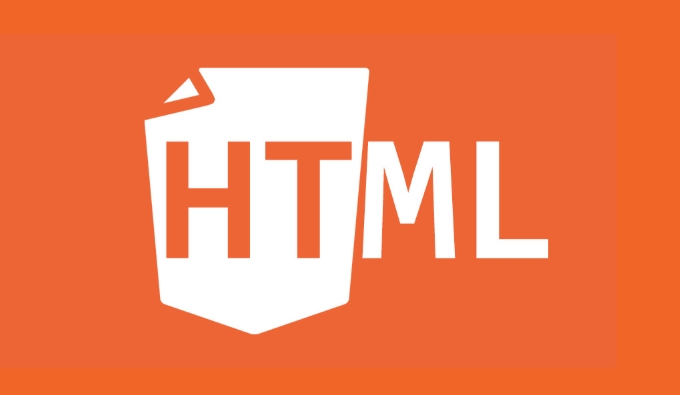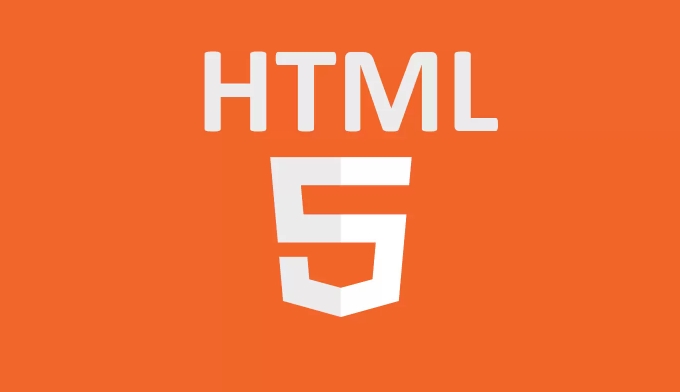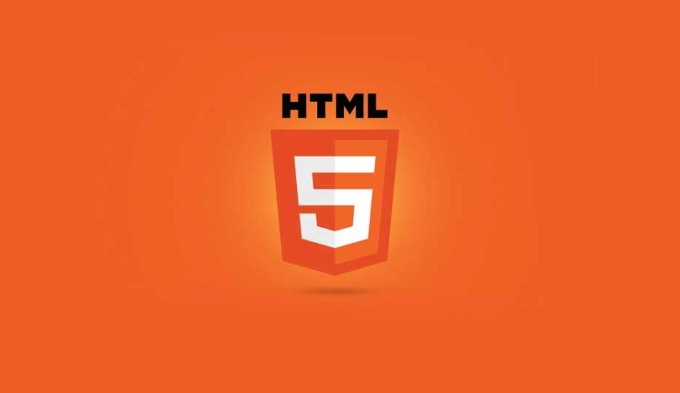Using the HTML `colspan` and `rowspan` attributes in tables.
Jul 03, 2025 am 02:08 AMThe colspan and rowspan attributes in HTML allow table cells to span multiple columns or rows. Colspan stretches a cell horizontally across multiple columns, ideal for merged headers or full-width rows, as in
<th colspan="3">Main Title</th>. Rowspan extends a cell vertically across multiple rows, such as <td rowspan="2">Shared Content</td>, requiring careful handling to avoid misalignment. Both can be combined in one cell to span rows and columns simultaneously, but this demands meticulous layout planning to maintain structure clarity.
When working with HTML tables, sometimes you need cells to span across multiple columns or rows. That’s where colspan and rowspan come in handy. These attributes let you merge table cells horizontally or vertically, just like merging cells in a spreadsheet.

What colspan does (and when to use it)
The colspan attribute tells a cell to stretch across multiple columns. It's useful when you want a single cell to fill the space of several regular cells in the same row.

For example, if you have a table with 3 columns but want one header to cover all three, you'd use:
<th colspan="3">Main Title</th>
This makes that header span the full width of the row. It works for both <td> and <th> elements.

Common use cases:
- Merged headers
- Full-width summary rows
- Grouping related content under one label
Just keep in mind that once you use colspan, the rest of the row should account for fewer available columns. Otherwise, your layout might look off or become harder to manage later.
How rowspan works (and what to watch out for)
The rowspan attribute lets a cell extend down through multiple rows. It's helpful when data in one column continues across several rows of other columns.
Here’s how you might use it:
<td rowspan="2">Shared Content</td>
This means the "Shared Content" cell will take up two rows vertically, and the next cell in that column won't show up until the third row.
Things to remember:
- Browsers automatically skip the space taken by the
rowspancell in the following rows. - You don’t need to add an extra empty cell below — doing so might break your layout.
- Like
colspan, this works on both<td>and<th>, but can make complex layouts harder to maintain.
It’s easy to accidentally misalign rows if you're not careful with how many rows you’re spanning and how the rest of the table is structured.
Combining colspan and rowspan in the same cell
You can use both attributes together in a single cell. This is useful for large or complex tables where a cell needs to span both horizontally and vertically.
Example:
<td rowspan="2" colspan="2">Big Cell</td>
Now that cell takes up two rows and two columns. But here's the catch — you’ll need to adjust the rest of your table structure accordingly. Each affected row should have fewer cells since part of it is already occupied by the merged one.
This kind of setup gets tricky fast, especially if you're nesting multiple spans. It’s best to sketch out your table layout first before writing the HTML.
That's the basic idea behind using colspan and rowspan. They help create more flexible and readable table layouts, but they also require careful planning to avoid confusing structures.
The above is the detailed content of Using the HTML `colspan` and `rowspan` attributes in tables.. For more information, please follow other related articles on the PHP Chinese website!

Hot AI Tools

Undress AI Tool
Undress images for free

Undresser.AI Undress
AI-powered app for creating realistic nude photos

AI Clothes Remover
Online AI tool for removing clothes from photos.

Clothoff.io
AI clothes remover

Video Face Swap
Swap faces in any video effortlessly with our completely free AI face swap tool!

Hot Article

Hot Tools

Notepad++7.3.1
Easy-to-use and free code editor

SublimeText3 Chinese version
Chinese version, very easy to use

Zend Studio 13.0.1
Powerful PHP integrated development environment

Dreamweaver CS6
Visual web development tools

SublimeText3 Mac version
God-level code editing software (SublimeText3)
 Essential HTML Tags for Beginners
Jul 27, 2025 am 03:45 AM
Essential HTML Tags for Beginners
Jul 27, 2025 am 03:45 AM
To get started with HTML quickly, you only need to master a few basic tags to build a web skeleton. 1. The page structure is essential, and, which is the root element, contains meta information, and is the content display area. 2. Use the title. The higher the level, the smaller the number. Use tags to segment the text to avoid skipping the level. 3. The link uses tags and matches the href attributes, and the image uses tags and contains src and alt attributes. 4. The list is divided into unordered lists and ordered lists. Each entry is represented and must be nested in the list. 5. Beginners don’t have to force memorize all tags. It is more efficient to write and check them while you are writing. Master the structure, text, links, pictures and lists to create basic web pages.
 Shadow DOM Concepts and HTML Integration
Jul 24, 2025 am 01:39 AM
Shadow DOM Concepts and HTML Integration
Jul 24, 2025 am 01:39 AM
ShadowDOM is a technology used in web component technology to create isolated DOM subtrees. 1. It allows the mount of an independent DOM structure on ordinary HTML elements, with its own styles and behaviors, and does not affect the main document; 2. Created through JavaScript, such as using the attachShadow method and setting the mode to open; 3. When used in combination with HTML, it has three major features: clear structure, style isolation and content projection (slot); 4. Notes include complex debugging, style scope control, performance overhead and framework compatibility issues. In short, ShadowDOM provides native encapsulation capabilities for building reusable and non-polluting UI components.
 Why is my image not showing up in HTML?
Jul 28, 2025 am 02:08 AM
Why is my image not showing up in HTML?
Jul 28, 2025 am 02:08 AM
Image not displayed is usually caused by a wrong file path, incorrect file name or extension, HTML syntax issues, or browser cache. 1. Make sure that the src path is consistent with the actual location of the file and use the correct relative path; 2. Check whether the file name case and extension match exactly, and verify whether the image can be loaded by directly entering the URL; 3. Check whether the img tag syntax is correct, ensure that there are no redundant characters and the alt attribute value is appropriate; 4. Try to force refresh the page, clear the cache, or use incognito mode to eliminate cache interference. Troubleshooting in this order can solve most HTML image display problems.
 HTML `style` Tag: Inline vs. Internal CSS
Jul 26, 2025 am 07:23 AM
HTML `style` Tag: Inline vs. Internal CSS
Jul 26, 2025 am 07:23 AM
The style placement method needs to be selected according to the scene. 1. Inline is suitable for temporary modification of single elements or dynamic JS control, such as the button color changes with operation; 2. Internal CSS is suitable for projects with few pages and simple structure, which is convenient for centralized management of styles, such as basic style settings of login pages; 3. Priority is given to reuse, maintenance and performance, and it is better to split external link CSS files for large projects.
 Can you put a tag inside another tag?
Jul 27, 2025 am 04:15 AM
Can you put a tag inside another tag?
Jul 27, 2025 am 04:15 AM
?Youcannotnesttagsinsideanothertagbecauseit’sinvalidHTML;browsersautomaticallyclosethefirstbeforeopeningthenext,resultinginseparateparagraphs.?Instead,useinlineelementslike,,orforstylingwithinaparagraph,orblockcontainerslikeortogroupmultipleparagraph
 HTML `link` for Prefetching DNS
Jul 23, 2025 am 02:19 AM
HTML `link` for Prefetching DNS
Jul 23, 2025 am 02:19 AM
Pre-resolving DNS can speed up page loading speed, and using HTML link tags for DNS pre-resolving is an effective method; DNSPrefetching saves subsequent request time by resolving domain names in advance; applicable scenarios include third-party fonts, advertising statistics scripts, resource hosting and CDN domain names; it is recommended to prioritize the main page dependency resources, reasonably control the number between 3 and 5, and use it with preconnect to better effect.
 How to create a table in AutoCAD?
Jul 20, 2025 am 12:02 AM
How to create a table in AutoCAD?
Jul 20, 2025 am 12:02 AM
The key steps to creating a table in AutoCAD include: 1. Use the "Table" command to directly insert a new table, set the number of rows, styles and positions; 2. Adjust the content and style after insertion, such as input text, merging cells, adjusting the column width, row height and alignment; 3. You can import the table from Excel and selectively paste it as an AutoCAD table object or Excel worksheet object; 4. Use the TABLESTYLE command to uniformly manage the table styles to ensure overall consistency. Mastering these steps can effectively complete table creation and editing.
 What is the name attribute in an input tag for?
Jul 27, 2025 am 04:14 AM
What is the name attribute in an input tag for?
Jul 27, 2025 am 04:14 AM
Thenameattributeinaninputtagisusedtoidentifytheinputwhentheformissubmitted;itservesasthekeyinthekey-valuepairsenttotheserver,wheretheuser'sinputisthevalue.1.Whenaformissubmitted,thenameattributebecomesthekeyandtheinputvaluebecomesthevalueinthedatasen






